
in Thoreau’s Journal:
A gray, overcast, still day, and more small birds, tree sparrows and chickadees, than usual about the house. There have been a very few fine snowflakes falling for many hours, and now, by 2 P.M., a regular snowstorm has commenced, fine flakes falling steadily, and rapidly whitening all the landscape. In half an hour the russet landscape is painted white, even to the horizon. Do we know of any other so silent and sudden a change?
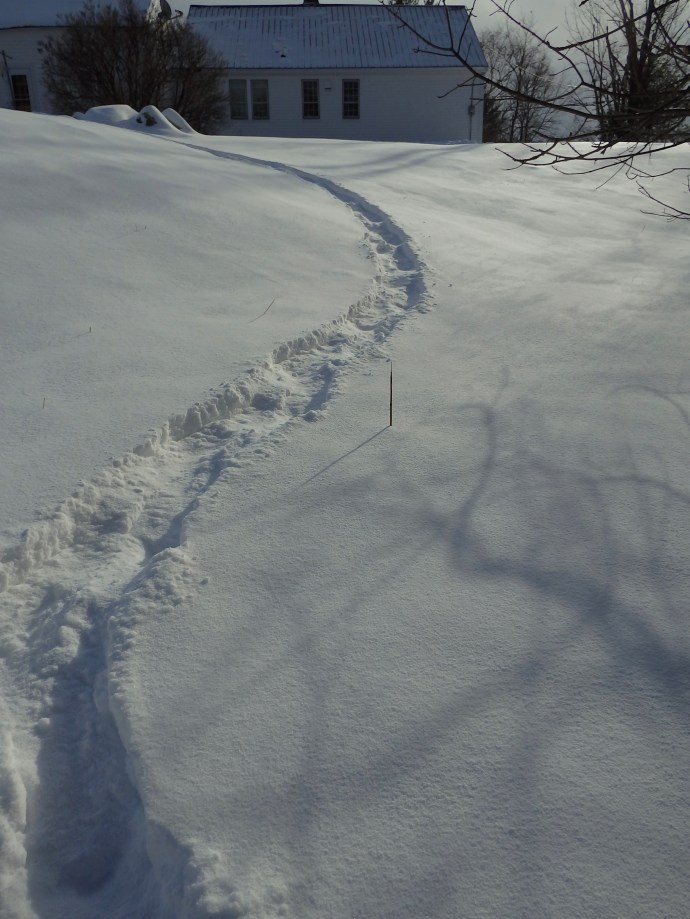
I cannot now walk without leaving a track behind me. That is one peculiarity of winter walking. Anybody may follow my trail. I have walked, perhaps, a particular wild path along some swamp side all summer, and thought, to myself, I am the only villager that ever comes here. But I go out shortly after the first snow has fallen, and lo, here is the track of a sportsman and his dog in my secluded path, and probably he preceded me in the summer as well. But my hour is not his, and I may never meet him.
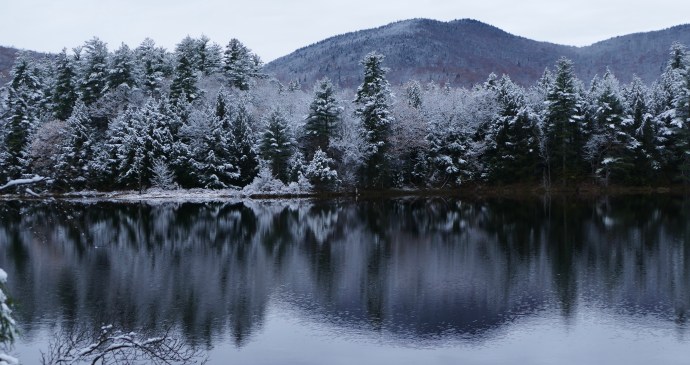

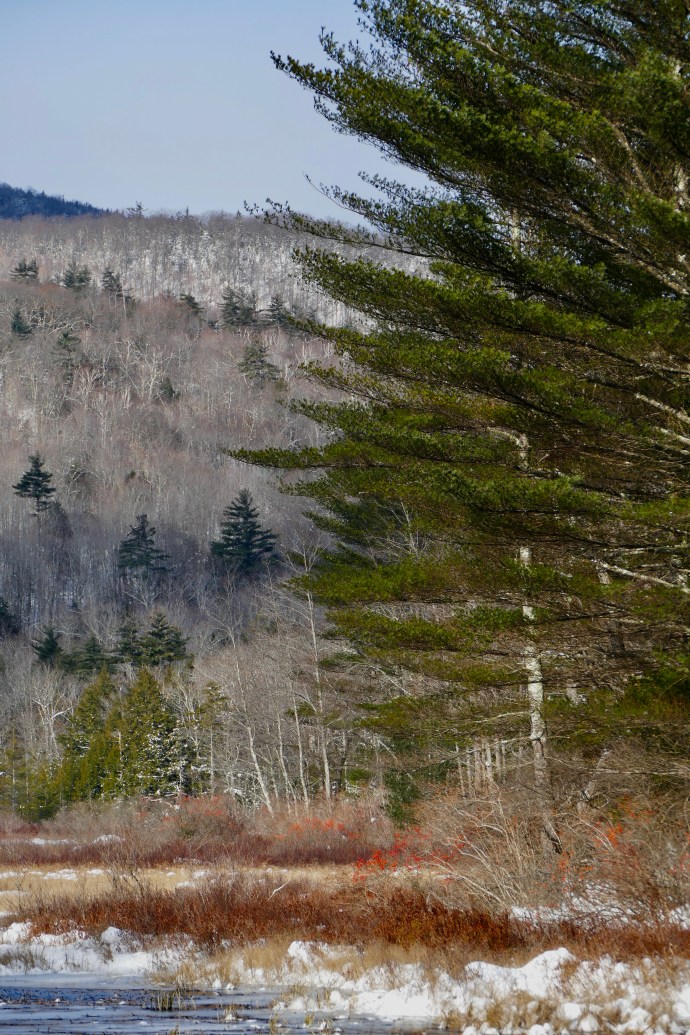


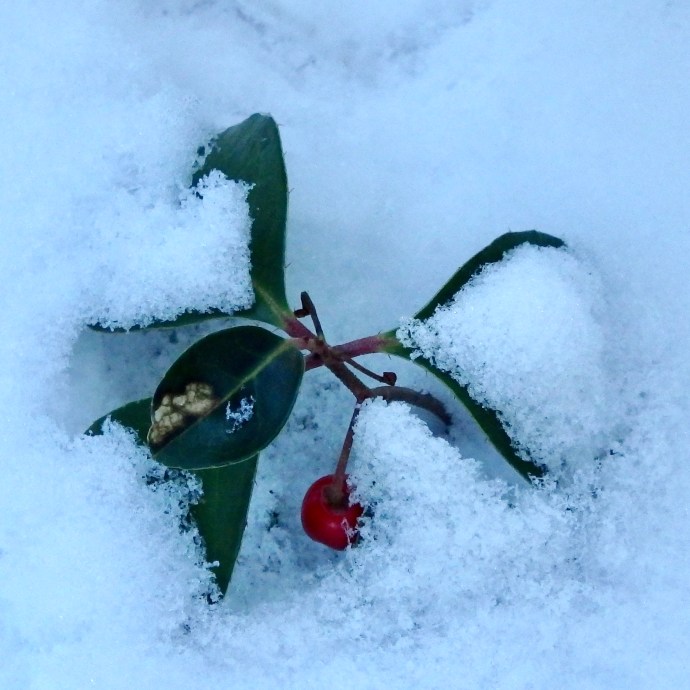


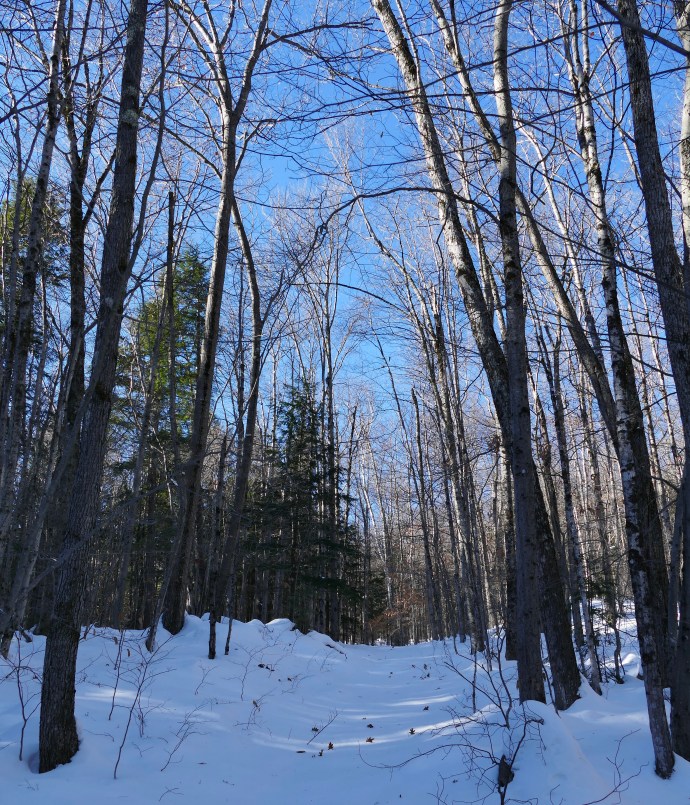



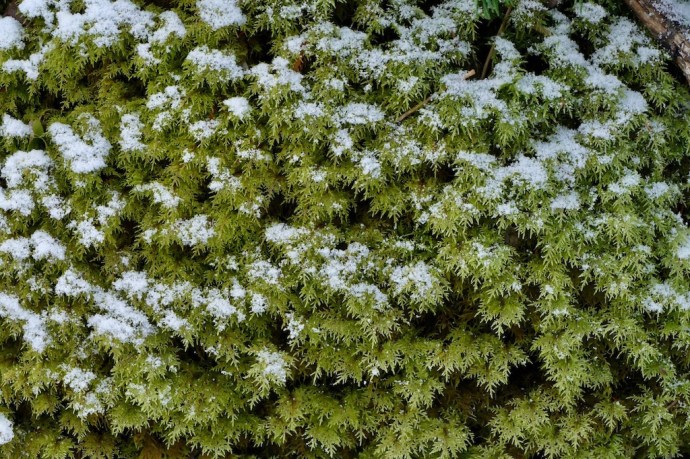


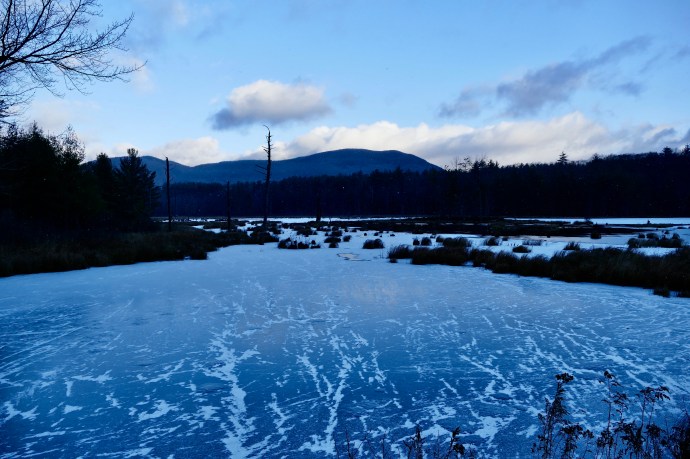
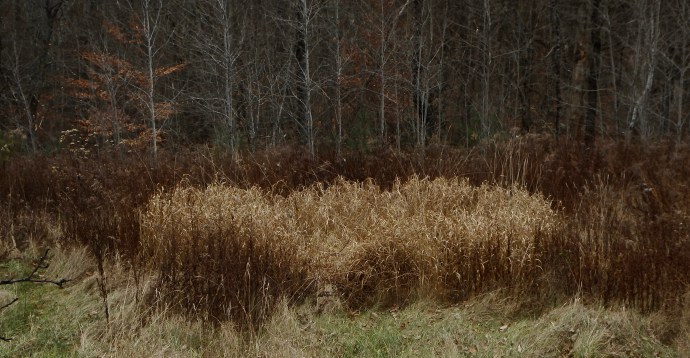

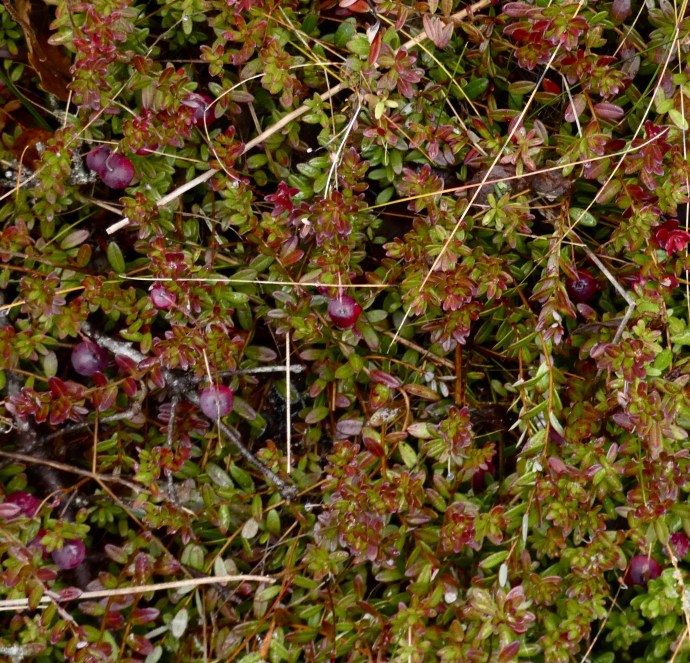

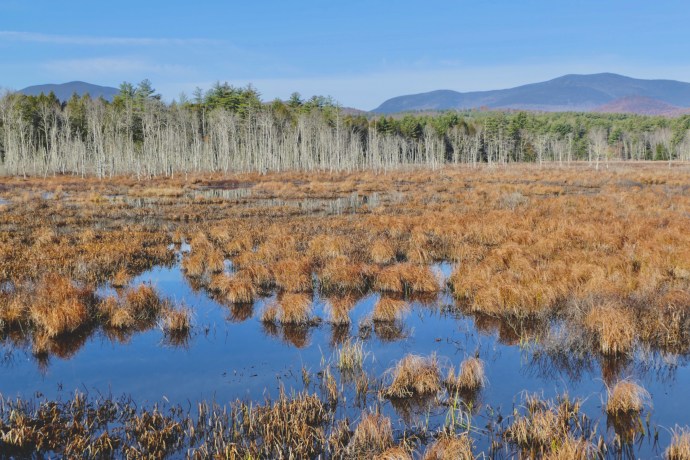

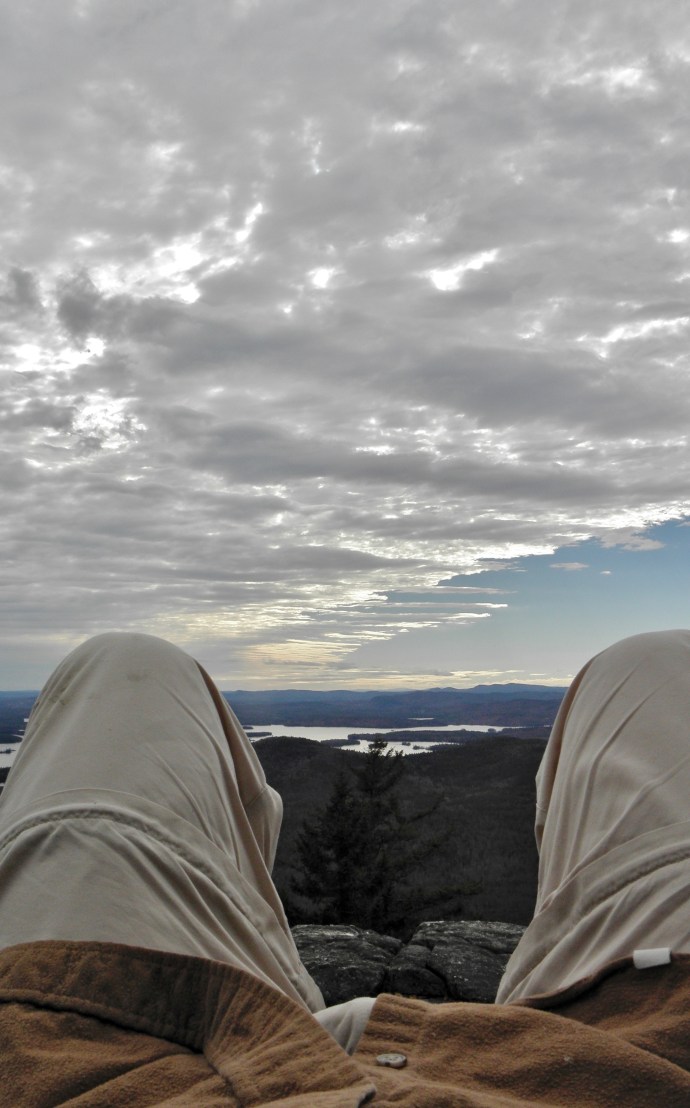

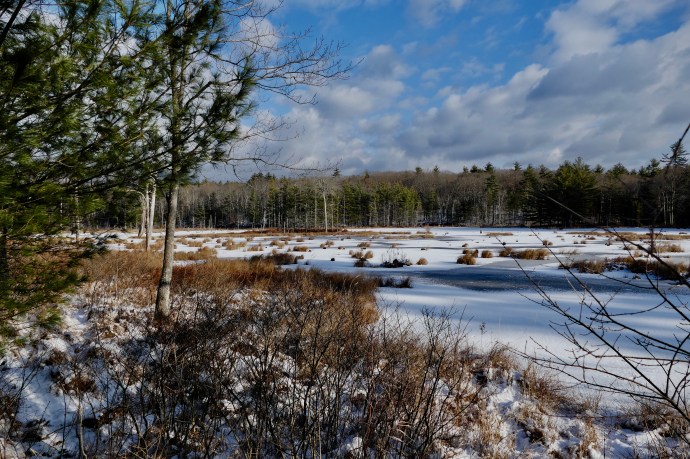
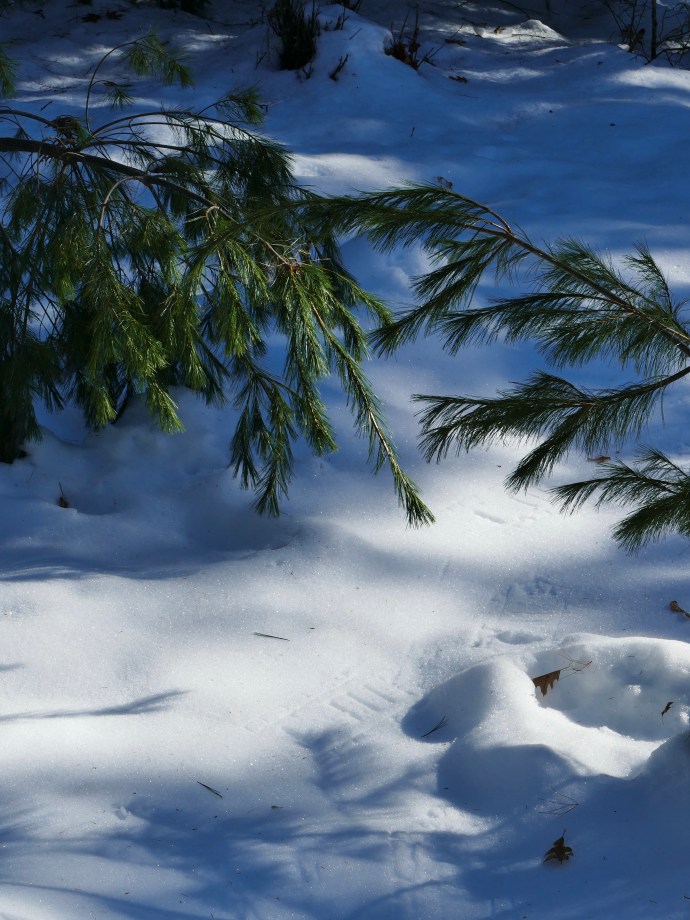



You must be logged in to post a comment.